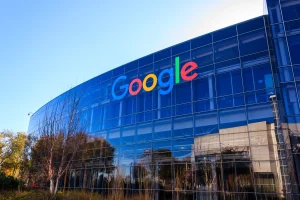
In a landmark decision, a U.S. judge has ruled that Google must allow more competition in its app store, challenging the tech giant’s long-standing control over Android’s app ecosystem. This ruling could potentially reshape the app marketplace, paving the way for alternative app stores and developers to have a fair shot at reaching consumers without paying hefty commissions to Google.
The case, which has garnered nationwide attention, stems from allegations that Google has maintained a near-monopoly over Android app distribution by limiting developers to using its Google Play Store and imposing fees on in-app purchases. This exclusivity, critics argue, stifles innovation, keeps prices artificially high, and restricts consumer choice.
Breaking Google’s Monopoly
For years, developers and companies have voiced concerns about Google’s tight control over the Play Store. Google mandates that apps distributed through its store must use its payment system for in-app purchases, taking up to 30% in commission. Many argue that this practice has allowed Google to amass billions of dollars at the expense of developers and consumers alike.
The recent ruling challenges this framework, forcing Google to allow apps to be distributed outside of its Play Store, without developers being locked into Google’s payment system. This opens the door for third-party app stores and direct app downloads from developers, which could reduce costs and give developers more freedom.
Potential Impact on Developers and Consumers
For developers, this ruling is a major victory. The high commission fees charged by Google (and similarly, by Apple in their App Store) have long been a point of contention. By offering alternative routes for app distribution, developers may save on commission costs and pass those savings on to consumers. Smaller developers, in particular, could benefit from the expanded freedom to market their apps more affordably.
Consumers may also stand to gain from this decision. The increased competition in the app market could result in lower prices for paid apps and in-app purchases. Moreover, the availability of alternative app stores could introduce a broader range of apps and innovations, as developers experiment with new ideas outside Google’s ecosystem.
Google’s Response and Next Steps
Unsurprisingly, Google is expected to challenge the ruling. The company has defended its policies, arguing that its fees help maintain the Play Store’s infrastructure, security, and developer tools. In its response to the ruling, Google indicated that opening up its app ecosystem could expose users to security risks and lead to reduced quality control.
However, consumer advocates and tech experts have been quick to dismiss these concerns. They argue that users are already accustomed to navigating multiple app ecosystems, citing the popularity of alternative app stores in countries like China, where Google Play is not the dominant force.
The Bigger Picture: Tech Giants Under Fire
This ruling is part of a broader wave of legal and regulatory challenges facing big tech companies. Both Google and Apple have been scrutinized for their control over app marketplaces, with accusations of monopolistic practices reaching a boiling point in recent years. Governments and regulators across the globe, from the European Union to the United States, are looking to curb the immense influence of tech giants.
Antitrust concerns have pushed regulators to explore how tech firms dominate entire ecosystems—from operating systems to digital advertising. The Google ruling is just one of many cases that could redefine how these companies operate and interact with developers and consumers alike.
The Future of App Stores: More Freedom or More Fragmentation?
While this ruling represents a win for competition, it also raises questions about the future of app distribution. Will the opening of app ecosystems lead to more freedom for developers and consumers, or will it result in fragmentation, with multiple app stores vying for dominance?
Some worry that smaller app stores may not offer the same level of security or user experience as Google’s Play Store, potentially leading to a fragmented market. On the other hand, many see this as an opportunity to inject new life into the app ecosystem by encouraging competition and innovation.
Only time will tell how this ruling will affect the broader app marketplace. However, one thing is clear: the days of Google’s unchecked dominance over the Android app ecosystem are numbered.
Conclusion
The ruling that requires Google to open its app store to competition could mark a turning point in the tech industry, particularly in how consumers access apps and how developers earn revenue. As antitrust concerns continue to challenge the practices of tech giants, this decision sets a precedent for greater scrutiny of monopolistic behavior and more options for both consumers and developers.




